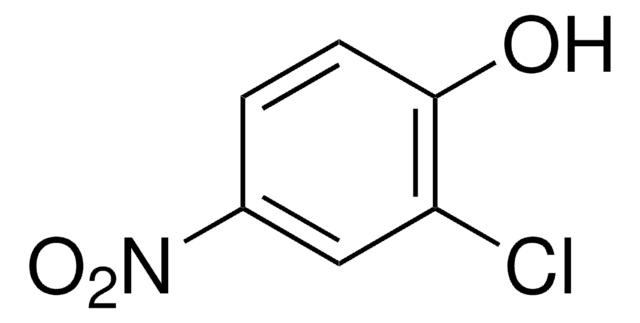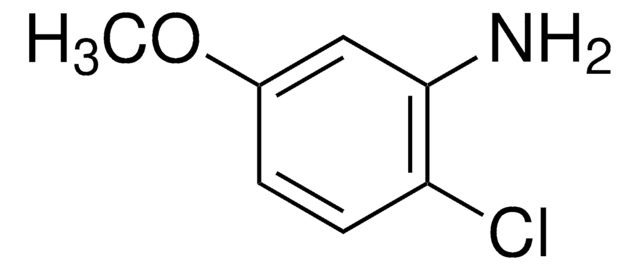About This Item
Recommended Products
Assay
≥97.0%
form
solid
impurities
~5% water
mp
85-87 °C (lit.)
85-89 °C
solubility
dioxane: soluble 0.5 g/5mL, clear, faintly yellow to yellow
SMILES string
Oc1ccc(Cl)cc1[N+]([O-])=O
InChI
1S/C6H4ClNO3/c7-4-1-2-6(9)5(3-4)8(10)11/h1-3,9H
InChI key
NWSIFTLPLKCTSX-UHFFFAOYSA-N
Looking for similar products? Visit Product Comparison Guide
Related Categories
General description
Signal Word
Warning
Hazard Statements
Precautionary Statements
Hazard Classifications
Eye Irrit. 2 - Skin Irrit. 2 - STOT SE 3
Target Organs
Respiratory system
Storage Class Code
11 - Combustible Solids
WGK
WGK 3
Flash Point(F)
Not applicable
Flash Point(C)
Not applicable
Personal Protective Equipment
Certificates of Analysis (COA)
Search for Certificates of Analysis (COA) by entering the products Lot/Batch Number. Lot and Batch Numbers can be found on a product’s label following the words ‘Lot’ or ‘Batch’.
Already Own This Product?
Find documentation for the products that you have recently purchased in the Document Library.
Our team of scientists has experience in all areas of research including Life Science, Material Science, Chemical Synthesis, Chromatography, Analytical and many others.
Contact Technical Service








